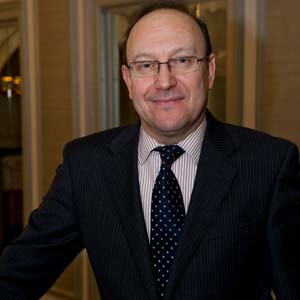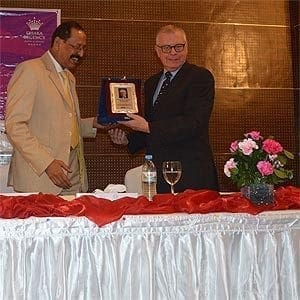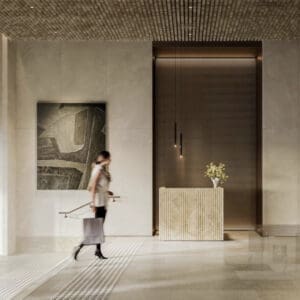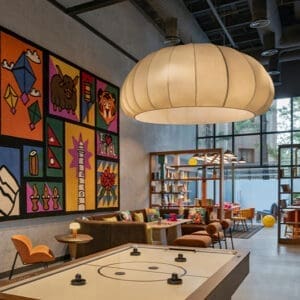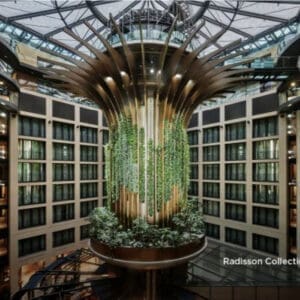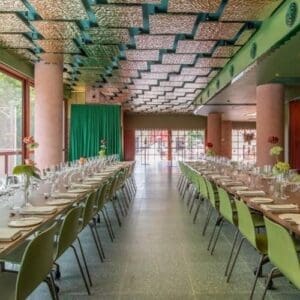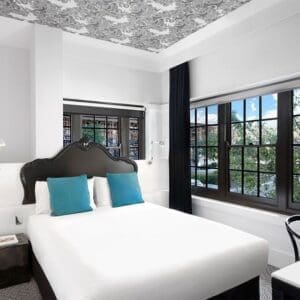What do hotels really sell? This was the key question discussed at the eHotelier Professional Development Workshop held recently at the Dhaka Regency Hotel. Are hotels in the business of selling rooms, food and beverage or leisure or are they in the business of selling the total “hotel experience”?
This question was a major topic of debate during the workshop, given the rapid developments taking place throughout the international industry and in Bangladesh. The group of 33 participants considered how the trends and challenges the industry faces would impact not just on how they marketed their hotels, but also on how they might need to rethink the “what” and “how” hotels provide for their guests.
The workshop was conducted by Prof. Peter A Jones, the Dean of the eHotelier Academy, who was visiting Bangladesh as a guest for the opening of a new hotel school – the Regency Hospitality Training Institute.
The hospitality and tourism industry in Bangladesh is developing rapidly with at least 3 new five-star hotel openings planned in Dhaka alone over the next 3 years. “As the industry grows and matures the need for continually updating the international knowledge and skills of the industry professionals is essential,” said Mr Shahid Hamid FIH, Chairman Pacific Asia Travel Association (PATA) Bangladesh Chapter and Executive Director of the Dhaka Regency Hotel and Resort. “We need to be able to enhance the professional standards and to ensure the hotel industry here in Bangladesh can compete in the global marketplace.”
The workshop, for hotel departmental heads and executives, focused on the changing guests’ expectations and how innovation is impacting on all aspects of the hotel experience. The workshop introduced the changing nature of expectations and innovations that are impacting across the spectrum of the hotel operations, from room design to the need to reduce the over and “conspicuous consumption” often prevalent in hotels.
What do hotels really sell?
The agreed answer to the initial question “what do hotels really sell?” was “experiences”. The notion of the “experience” being accepted and recognised as a change in guests’ expectations. The idea that a hotel is more than the sum of the operational parts but is the “experiential value” guests place on the complete package of the hotel offering requires a more integrated approach to thinking about the “what and how” of hotels and how internal operational management needs to change to respond.

The view was developed that hotels are, “places” that create “spaces” for guests within which they sleep, eat, work and relax. The physical environment, the food offered, the leisure facilities, the resources for work are essential elements but do not make the whole. It is the all-important service culture and ethos that helps to act as the glue that brings all of the components together into the hotel experience.
Taking the themes of responding to the trends and challenges of the changing guests, the participants worked on developing practical responses that could be implemented in their own hotels. They identified the key challenge of recruiting and retaining talented staff as being the major challenge and one that is equally applicable in Bangladesh, as it is internationally.
In drawing the workshop to a conclusion the analogy was drawn that if one thinks about the totality of the hotel experience as being “the theatre of hospitality”, the hotel is the “staging” for creating a range of engaging experiences that encourage the guest into becoming a more active participant. Using this idea it was concluded that hotels need to be constantly mindful of the need to often make minor adaptations to the “what and how” by refreshing the stage and giving the guests a different view of the hotel. This can be achieved through thinking about creating different places and spaces for guests for working and socialising in the public spaces of the hotel and through directing the actors (staff) by encouraging them to think about the constantly evolving nature of their “performance”. It is those actors who have a key role in creating the experience. They are also fundamental to the story telling that engages, educates and entertains the guest and makes them feel they have a valued and valuable experience and leave the hotel considering their time at the hotel was time well spent. It is, after all, the value of passing on the stories of those experiences to others that is the best marketing.
About the author
 Professor Peter A. Jones, MBE, is the Dean of the eHotelier Academy. With a distinguished career in hospitality, education and training, Peter has been involved with national and international projects with clients involved in hospitality education. Peter is a Director the Edge Hotel School and of Hotel Future, a new education and training initiative in Greater Manchester and is a Visiting Professor at the University of Derby. He was also awarded a Member of the Order of the British Empire for services to the hospitality industry.
Professor Peter A. Jones, MBE, is the Dean of the eHotelier Academy. With a distinguished career in hospitality, education and training, Peter has been involved with national and international projects with clients involved in hospitality education. Peter is a Director the Edge Hotel School and of Hotel Future, a new education and training initiative in Greater Manchester and is a Visiting Professor at the University of Derby. He was also awarded a Member of the Order of the British Empire for services to the hospitality industry.


